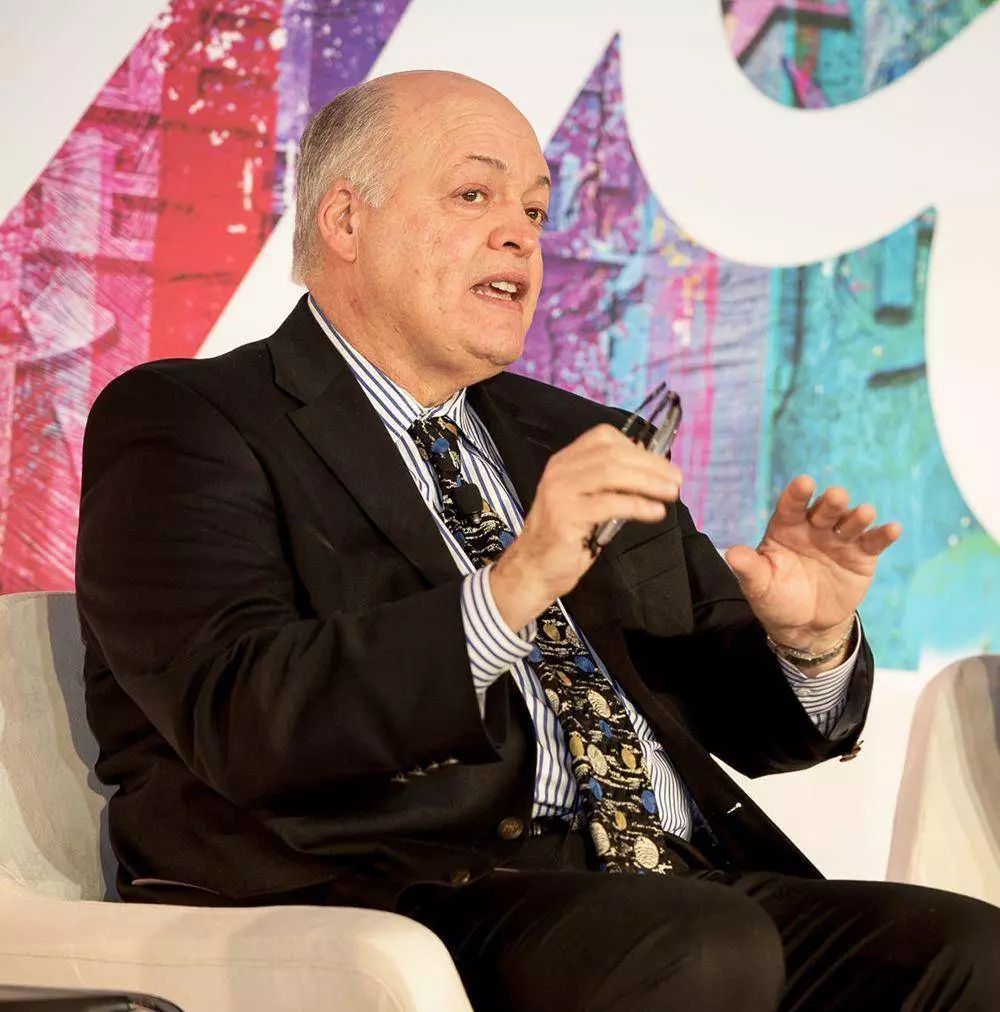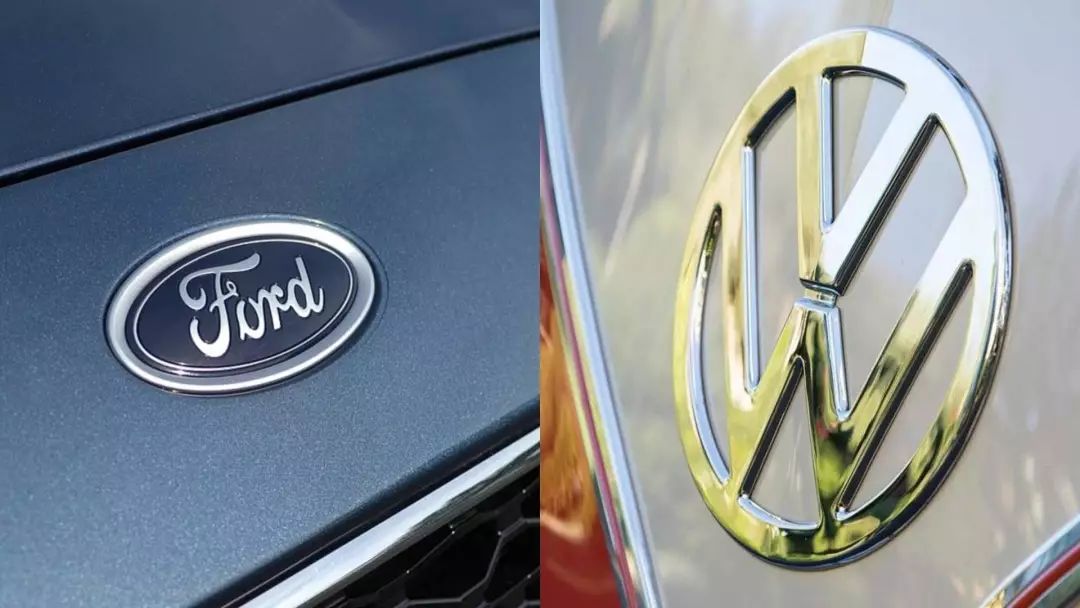Earlier there was a report saying that two car industry giants, Ford and Volkswagen, have started discussing possible collaborations in June 2018. Later, in an interview, Herbert Diess, CEO of Volkswagen, revealed that Volkswagen was in discussions with Ford about collaborating on small commercial vehicles in Europe. Diess also mentioned that further collaborations between the two companies were possible–including sharing Ford’s electric vehicle production platform, MEB, and using Ford Ranger’s production platform to manufacture Amarok pick-ups.
According to insiders, the scope of the alliance that Ford and Volkswagen are forming has expanded which includes potential collaborations in autonomous driving and manufacturing car products for each other.
Bob Shanks, CFO of Ford, said, “Collaboration is not limited in any way, whether different technologies types, product segments, or geographic locations; we discussed how we could help each other globally.” Meanwhile, Frank Witter, CFO of Volkswagen, said, “Volkswagen is willing to share its MEB electric vehicle architecture with American carmakers.” Witter also claimed that Volkswagen was focused on preparing to launch MEB-based vehicles, of which the first car is planned to be produced later next year. Vehicles based on the MEB platform will be produced at the Volkswagen facility in Zwickau, Germany. Volkswagen expects to manufacture ten million vehicles using the MEB architecture.
Additionally, Volkswagen is planning to expand the scale of its only assembly plant in Tennessee, USA, or build a new plant to increase its production capacity in the United States and expand the number of products it offers to American consumers.
For years, Volkswagen and Ford have been competitive adversaries in the market, however, they are now seeking to “turn foes into friends”. There must be multiple underlying factors for these two veteran car giants to collaborate. For Volkswagen, the Dieselgate incident was the biggest issue resulting in billions in fines and many high-level executives leaving the company. At the same time, to meet increasingly rigorous emission standards, Volkswagen needs to invest heavily in upgrading its combustion engine models. To Volkswagen during this period, saving costs was particularly important.But just in the past year, in order to make electric and autonomous vehicles roadworthy, Volkswagen’s R&D costs reached as high as $13.1 billion, which was unacceptable for Volkswagen, so seeking collaboration and reducing R&D costs became inevitable.
For Ford, although there were no massive fines, times were equally difficult. In September, Ford’s performance in China declined by 43%, and the market that once filled Ford’s pockets has begun to generate losses. Since the beginning of 2018, Ford’s stock price has fallen by a cumulative 27%. Furthermore, Ford is currently undergoing a costly and time-consuming global restructuring, and has just given up its profitability target for 2020.
Meanwhile, Ford has yet to produce a satisfactory electric vehicle, but its longtime competitors GM and Nissan have respectively introduced the Bolt EV and the Leaf. Therefore, cooperating with former rivals is a good way to reduce costs and accelerate the introduction of new vehicles and technologies into the market.

A Match Made in Heaven?
As automotive industry giants in Germany and America, Volkswagen and Ford are involved in this cross-continental cooperation not just because they need each other, but also because they share a deep history.
As early as 1987, Volkswagen and Ford were difficult brothers in South America. The two companies jointly established Autolatina Automotive Sales Company in a recessionary South America. Volkswagen and Ford held 51% and 49% of the shares respectively. Their products were marketed by the same company, creating a harmonious atmosphere. Although the jointly established company was dissolved in 1995, it left a “good memory” for both parties.
In August of this year, there were reports that Ford wanted to sell its South American business to Volkswagen. Although both sides denied it, considering Ford’s dismal sales in South America and internal news that Ford CEO Jim Hackett is considering leaving the South American market, this “rumor” could still come true.
Another reason for Ford’s collaboration with Volkswagen comes from Volkswagen’s strength. In the first half of 2018, the Volkswagen Group achieved revenue growth of 3.5% year-on-year to reach 119.4 billion euros. Although its performance also declined in Q3 due to the overall market environment, Volkswagen could still compete with Toyota throughout the whole year.Furthermore, Volkswagen and Ford both have made huge investments in the electric vehicle and autonomous driving fields, but with little payoff. It is possible that the two companies partnering in this regard could lead to greater progress.
Recently, both Volkswagen and Ford have shown strong confidence in the future. In a recent interview, Volkswagen CEO Herbert Diess expressed his confidence in Volkswagen’s electric car plans and even announced that “by 2020, Volkswagen will offer models at a price half that of Tesla but with comparable performance.”
Diess also said, “We are becoming very strong. We have invested 30 billion euros in the field of electric vehicles, we have established a factory in Zwickau, and we are building an electric car factory in Shanghai. We will launch attractive Volkswagen electric vehicles as early as 2019.”
Ford also has high hopes, boldly stating in a commercial featuring Hollywood star Bryan Cranston, “Talk doesn’t get things done. Building does.” The commercial even showcased Ford’s upcoming models, including a hybrid or all-electric Mustang.
However, are things really that optimistic? While the goal may be achievable, the process is not easy. Apart from the downturn in the market and the rise in costs, what is most likely to shake up the traditional giants and rewrite the direction of automotive development in the next decade are “tech companies” like Tesla and Waymo. As mentioned earlier, Volkswagen has invested heavily in developing electric vehicles and autonomous driving technology, but unfortunately, its most advanced autonomous driving technology still lags far behind Waymo.
In addition, Volkswagen and other traditional car companies lag far behind Tesla in their battery procurement scale, and thus the cost of producing electric vehicles is difficult to breakthrough. Volkswagen executives have repeatedly stated that “the only way to popularize electric vehicles is to reduce production costs through economies of scale, which may be the important factor in Volkswagen’s collaboration with Ford.” Developing more models on the MEB platform, occupying more market share, and expanding purchasing scale to reduce production costs.
Note: The image included in the original text was not able to be translated as it was a reference to a specific image.Similar to the industrial revolution, the promotion of electric vehicles is also a revolution. For traditional car companies, it is not easy to maintain their position in the transformation. On the one hand, there are many technology companies leading in key technologies of intelligent electric vehicles. On the other hand, there are many new car-making forces and cross-border car-making companies “coveting” the market. And there is one more thing, which is consumers’ entrenched “price thinking”.
Compared with internal combustion engine vehicles, the cost of electric vehicles is very high. However, from the perspective of users, a big data report shows that it will be easier to accept only when the price of new energy vehicles can be comparable to that of corresponding fuel vehicles, or even cheaper. Therefore, how to reduce costs with larger manufacturing scale is also a problem that car companies must consider.
Oh, by the way, it is necessary to add a sentence. While the bosses of traditional car companies are still slapping their foreheads trying to figure out how to reduce the production cost of electric vehicles, Tesla, which they laughed at a few years ago, achieved profitability again in Q3 with pure electric vehicles, with an automotive business revenue of 6.098 billion US dollars and a gross profit of 1.573 billion US dollars, with a gross profit margin of 25.8%. Surprised? Exciting?

At this point in time when the traditional automobile industry may be disrupted, confidence belongs to confidence, and worries belong to worries. However, it seems that the automobile giants do not intend to place all their bets on themselves or just one partner, and casting a wide net seems to have become a trend.
Volkswagen announced its partnership with the Silicon Valley autonomous driving company Aurora at the beginning of the year to develop autonomous driving. This relatively unknown company was established by former directors of autonomous driving from Google, Tesla and Uber. In addition, they also brought in the former software engineering manager of Space X.
Just last month, Aurora received authorization from the Pennsylvania Department of Transportation to become the first company in Pennsylvania to conduct unmanned driving experiments on public roads. Sounds good, doesn’t it?
However, Volkswagen seems not confident enough in this partner. Last month, Volkswagen CEO Herbert Diess was rumored to be planning to buy just 10% of Waymo’s stake for $13.7 billion, but the plan was killed in its infancy by the supervisory board.
Not only Volkswagen, but Ford is also taking action. Ford plans to provide comprehensive electrification solutions in China by 2025, and joined Baidu’s Apollo program to develop autonomous driving as early as 2017. Another partner is Zotye, and Ford and Zotye cooperate in electric vehicles R&D and ride-hailing services.
For traditional car companies, there is a risk of being reshuffled within the next ten years if they cannot find direction quickly and continue to exert effort. It might be an extremely difficult choice to decide whether to invest heavily or give up and contract with technology companies.
However, at present, the traditional automobile giants seem to have no intention of giving up. Nevertheless, it may be somewhat difficult, both technically and financially, to face such intensive and complex challenges alone. Maybe “huddling together for warmth” is an unavoidable but wise choice.
Why can’t Baidu be in the smart car business?
Apple, Google, and Tesla: Reshaping the Auto Industry in Ten Years
This article is a translation by ChatGPT of a Chinese report from 42HOW. If you have any questions about it, please email bd@42how.com.
